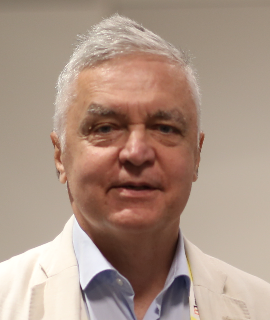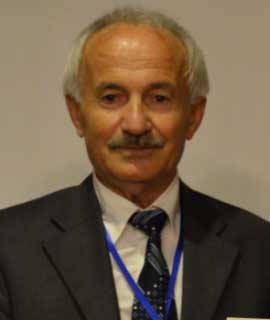Any member of a class of chemicals containing at least one metal-to-carbon bond in which the carbon is part of an organic group is known as an organometallic compound. Organometallic compounds are a broad group of substances that have had a significant impact on the development of chemistry. In the laboratory and in industry, they are widely exploited as catalysts (substances that improve the rate of processes without being consumed) and intermediates.
Organocatalysis accelerates chemical reactions by using tiny organic molecules primarily made up of C, H, O, N, S, and P. When compared to (transition) metal catalysts, organocatalysts have a considerable direct benefit in the synthesis of pharmaceutical intermediates due to their lack of sensitivity to moisture and oxygen, their quick availability, low cost, and low toxicity.
Bioinorganic chemistry, also known as biological inorganic chemistry, is the study of the interactions between inorganic compounds and biologically important molecules. It covers a wide range of topics, including the role, intake, and fate of necessary elements for life, as well as the response of living organisms to hazardous inorganic chemicals. metal-based medications' function, synthetic production of functional models.
- Organometallics for green catalysis
- Green and sustainable catalysis through organocatalysis
- Bioinorganic chemistry in drug development
- Environmental bioinorganic chemistry
- Transition metals

Thomas J Webster
Interstellar Therapeutics, United States
Sergey Suchkov
R&D Director of the National Center for Human Photosynthesis, Mexico
Christopher Koroneos
University of Western Attica, Greece
Haibo Ge
Texas Tech University, United States
Valery P Kalinitchenko
All Russian Phytopathology Research Institute, Russian Federation
Osman Adiguzel
Firat University, Turkey
Delia Teresa Sponza
Dokuz Eylul University, Turkey
Guangnan Ou
Jimei University, China


Title : Using cells as the environmentally catalyst for nanoparticle synthesis: Killing bacteria, inhibiting inflammation, and growing tissues
Thomas J Webster, Interstellar Therapeutics, United States
Title : Personalized and Precision Medicine (PPM) as a unique healthcare model to be set up through biodesign-inspired biotech-driven translational applications and upgraded business marketing to secure the human healthcare, wellness and biosafety
Sergey Suchkov, R&D Director of the National Center for Human Photosynthesis, Mexico
Title : Chemical soil biological engineering and biogeosystem technique methodology
Valery P Kalinitchenko, All Russian Phytopathology Research Institute, Russian Federation
Title : Antibody-proteases as translational tools of the next-step generation to be applied for biotech, bioindustry and personalized and precision medical practice
Sergey Suchkov, R&D Director of the National Center for Human Photosynthesis, Mexico
Title : Shape memory phenomena and crystallographic transformations in shape memory alloys
Osman Adiguzel, Firat University, Turkey
Title : Construction of artificial metalloenzymes by protein refolding
Guangnan Ou, Jimei University, China
Title : Photoremoval of some brominated phenols (4-bromophenol and 2,4,6-tribromophenol) with reused polystyrene foam and SnO2
Delia Teresa Sponza, Dokuz Eylul University, Turkey
Title : Phenol removal from wastewater using innovative biological and industrial wastes as adsorbents
Ashanendu Mandal, University of Calcutta, India
Title : Boom of nanomaterials in environmental remediation
Vijendra Singh Solanki, Institute of Science and Research, India
Title : Process intensification for the production of 2, 2-dimethoxypropane using Fixed BED Chromatographic Reactor (FBCR)
Akash Sunilrao Shinde, Indian Institute of Technology Bombay, India